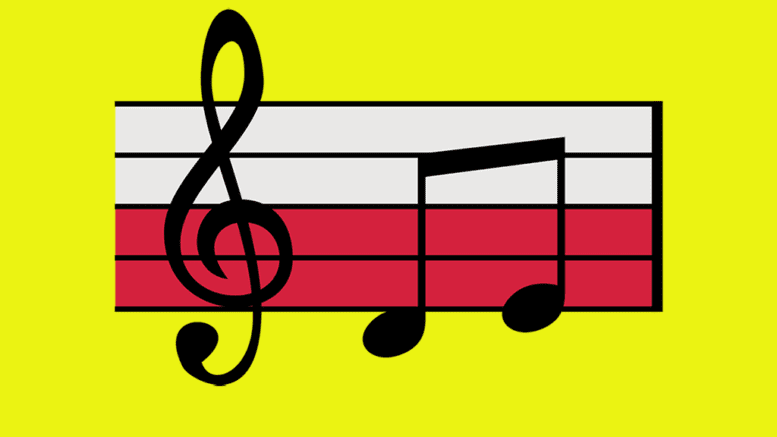by John A. Tures, Professor of Political Science, LaGrange College
Last month, a little-known artist by the name of Christopher Anthony Lunsford, who goes by the stage name Oliver Anthony, went viral with 17.5 million hits online of his performance of his song “Rich Men North of Richmond,” and saw 147,000 sold copies of his music. Shortly thereafter, he was featured in the first Republican Party Debate. But as this column will demonstrate, Oliver Anthony and his music, like so many before him, is an artist of the people, not the tool of any political party.
When Oliver Anthony went from being unknown at the beginning of August to having a clip of him played at the start of the first GOP debate of the 2024 primary election later that month, it seemed like something out of Hollywood, like Andy Griffith’s folk song performer in the Elia Kazan 1957 film “A Face in the Crowd.” According to SWVA Today, “Fox News Channel moderator Martha MacCallum asked Florida Gov. Ron DeSantis why the song has become so popular. Candidates were asked to lay out their economic arguments by way of explaining why a viral song decrying high taxes and the wealth of the elite had caught fire.
‘As we sit here tonight, the number one song on the Billboard chart is called ‘Rich Man North of Richmond,’ she asked. ‘It is by a singer from Farmville, Virginia, named Oliver Anthony. His lyrics speak of alienation, of deep frustration with the state of government and of this country. Washington, D.C. is about 100 miles north of Richmond,’ she said.’”
DeSantis and the other GOP candidates then took their shot saying that the song was all about Biden and how the song proved the Democratic President’s policies were all wrong.
Imagine their surprise when they heard that Oliver Anthony wasn’t just singling out Joe Biden for anything. In fact, he was thinking of all Washington D.C. politicians.
“In a YouTube video posted on Friday, the Farmville, Virginia, singer said he doesn’t like seeing people “wrap politics” around his message, which is focused on the lives of people who are, as in the lyrics of “Rich Men North of Richmond,” “workin’ all day/ Overtime hours for bullsh** pay,” according to the Independent.
“It was funny seeing my song at the presidential debate, because it’s like I wrote that song about those people. For them to have to sit and have to listen to it, that cracks me up,” Anthony said, according to the Independent. “That song has nothing to do with Joe Biden. It’s a lot bigger than Joe Biden,” he continued. “That song is written about the people on that stage, and a lot more too, not just them, but definitely them.” Yet Harry Khachatrian of The Washington Examiner gets it. Popular musicians and songwriters like Oliver Anthony aren’t always looking for political gain and fame with their creations.
“The power of the best protest songs lies not in their being paeans to specific political movements,” he writes. “Instead, their resonance stems from their incisive critiques of broader
issues that underpin the political system. These aren’t merely the headline-grabbing issues that dominate political debates or election seasons. They dig deeper, challenging systems and structures, rather than suggesting that a simple change of the guard or voting in the perceived ‘correct party’ can offer a panacea.”
Khachatrian provides the example of Ronald Reagan’s team seeking to co-opt Bruce Springsteen’s “Born in the USA,” which had a very different message than the President’s successful reelection campaign. Reagan’s team liked the patriotic sound of the refrain, but ignored the message which referred to those more likely to be left behind in the 1980s. Now Springsteen is vilified by many on the right for his message.
Anthony would soon discover what “The Boss” has gone through. Shortly after the GOP debate, the new artist stated “We are the melting pot of the world,” in a Fox News interview after a North Carolina concert. “And that’s what makes us strong, our diversity. And we need to learn to harness that and appreciate it and not use it as a political tool to keep everyone separate from it.” But as Billboard reports “Those statesmanlike comments, however, have fallen flat with conservatives.” The rest of the article documents individual screeds against Anthony.
Khachatrain concludes a better means of connecting politics with music’s populism. “Politicians who genuinely connect with messages such as Oliver Anthony’s would serve their constituents more authentically by embodying these sentiments in their policies rather than parading them as catchy campaign slogans. If a lawmaker truly feels the weight of Anthony’s lament against the inflationary assault on the dollar, the most appropriate response would be through advocating meaningful policy change, not just nodding in superficial agreement. In other words, keep it real, and be authentic when it comes to connecting popular music and politics.”
John A. Tures is a professor of political science at LaGrange College in LaGrange, Georgia. His views are his own. He can be reached at jtures@lagrange.edu. His Twitter account is JohnTures2.
